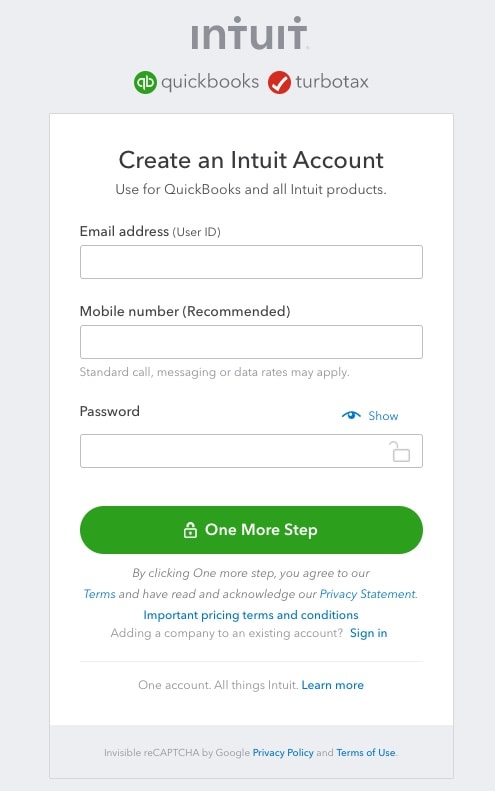Turn on suggestions
Auto-suggest helps you quickly narrow down your search results by suggesting possible matches as you type.
Showing results for
I have 2 x permanent jobs which are paid via PAYE as well as income from freelance work that I need to pay tax on. How do I account for PAYE income alongside freelance income in QB?
Thanks
Thanks for reaching out to us here in the Community, @ColinC.
I'll walk you through categorising your PAYE and freelance income.
For your PAYE income, you can classify it as an estimated employment income on the Tax Profile since it was deducted from PAYE taxes. It should be a positive amount deposited to your accounts that doesn't come from your self-employed work. Here's how:


For your freelance income, you can categorise it as a business income. It is part of the calculations for estimated taxes so it'll only include money that comes from your self-employed work. Here's how:

The steps and screenshots above will help you properly account your PAYE and freelance income, @ColinC.
If you need further assistance, don't hesitate to click the Reply button. I'm always here to help.
Thank you so much - I am very impressed with the super quick and highly useful reply!!!!
Have a great day!!!
@ColinC Thank you for your useful post.
I would like to clarify the followings with you to make sure I got it right.
So, I understand that all PAYE bank transfers received through my Quickbook linked bank account are to be accounted for within my Tax Profile and not through the Transactions tab. Assuming this is correct, I get two questions:
Thank you in advance for your feedback on this.
Can I have a feedback my previous posts above?
Thanks for joining this thread, Annick.
The amount entered in the Estimated employment income field is your gross income.
To ensure your income is reported correctly, all transactions from PAYE should be categorized as personal. QuickBooks is only tracking the money you earn for self-employed business.
Then, record the actual income in the Tax Profile section. This helps identify your tax bracket and will show up under the W-2 Annual Income box.
Feel free to read through this article: How to use QB reports to fill in your tax return for your guidance in filing your returns.
Should you need anything else, please leave a comment below. I'm always around to help you out.
Hi,
I've followed the steps in this thread, but QB is not calculating the tax due on my self employed income.
I have £12,000 PAYE Income i the 2019/2020 Tax Year and so far approx £4,300 in Self Employed profit. The current tax calculation is £0
Should there not be a running tax calculation and then NI too, as thresholds are met?
Thanks
James.
Hi, James59.
Let me help you sort this out and get your taxes calculated.
We use the "other income" to determine the tax bracket. The tax is withheld automatically on that other income so include that as well. The tax brackets work so that only the amount over the threshold is taxed at that rate.
Here's some additional information as to how we come up with the total income tax calculation:
See the example below:
The total taxable income is 37295 minus the allowance of 0, which equals to 37295. The first 34500 of that is taxes at 20%, which is 6900. The remaining 2795 is taxed at 40%, which would be 1118. That puts the total tax in this scenario at 8018, we calculate withholding at 20% on the 21295 other income, which is 4259. That leaves a remainder of 3759.
If your tax calculation is still zero, I'd suggest getting in touch with our QuickBooks Self-Employed to help you further. Here's how you can reach us: https://help.quickbooks.intuit.com/en_GB/contact.
You may find the following articles helpful:
I'll be around to help if you have any other income tax concerns in QuickBooks. Have a good one.
I created a disposable trial account because I'm thinking of Quickbooks. Exact same issue.
Employment income exceeds personal allowance so I should be taxed on all Self Employment income. Doesn't work. Tried all things you'd expect. Logging out/in tweaking all the numbers, and so on.
I'm here to share additional details about your self-employment taxes, id5d.
The income you've added in the Estimated employment income field will not affect your income tax calculation. It's only for recording purposes to serve as your guide when you file it to HMRC. It won't affect on how QuickBooks calculates your self-employed taxes.
You can visit these articles to learn more about Income Tax calculation and SA103F Categories.
Please visit us again here if you have additional questions. Have a great day!
[Sorry, lost password, had to create a new account to reply]
That makes no sense whatsoever. I just can't think of any possible way that makes sense!
Your tax estimation for my self employed income is working on the basis that I will have a 12500 personal allowance. But by adding a number above 12500 in the Employment Income section, I have just informed you that that's not available because I've used it up in my employment.
It's not exactly complicated mathematics:
Personal-Allowance-I-can-Apply-to-Self-Employed-Income = Personal-Allowance - Empolyed-Income
Why would I even use Quickbooks if it can't do that very basic thing to show me a correct guess of tax from self-employment as I go through the year?
You're giving me an estimate you know is wrong and you have in your possession the information to correct it.

You have clicked a link to a site outside of the QuickBooks or ProFile Communities. By clicking "Continue", you will leave the community and be taken to that site instead.
